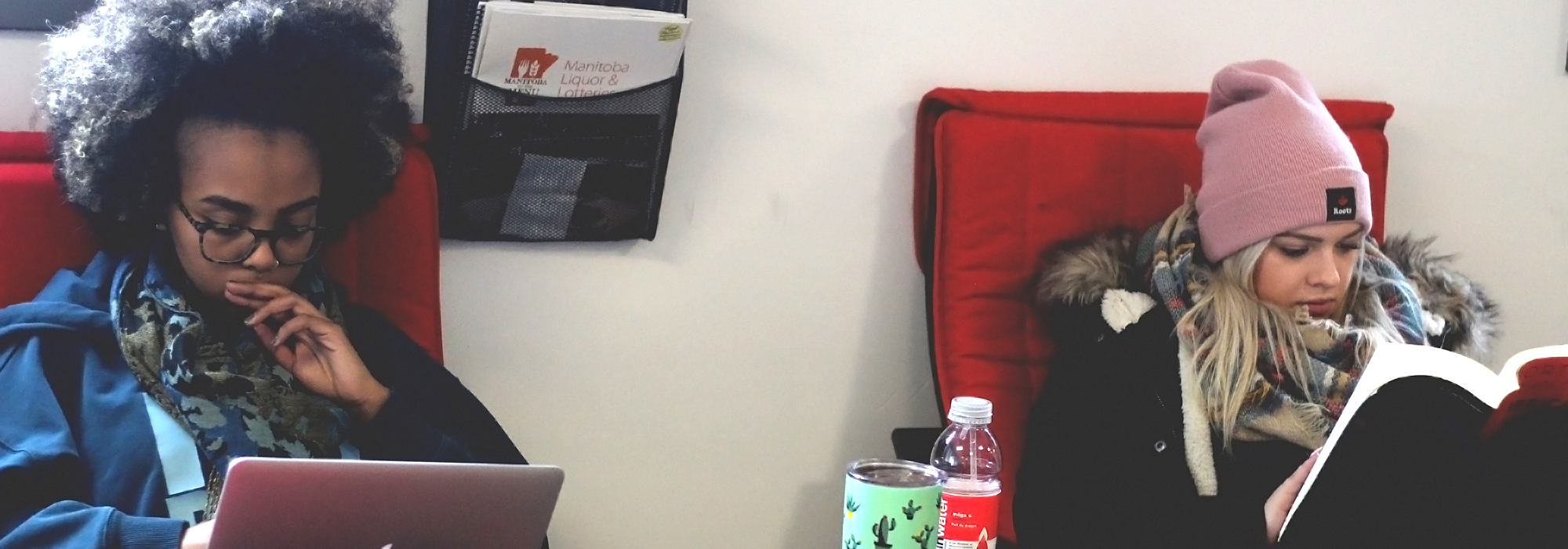
Menno Simons College Blog
Taking restorative justice abroad
Posted by CMU Staff | Thursday, February 12, 2015 @ 9:07 AM
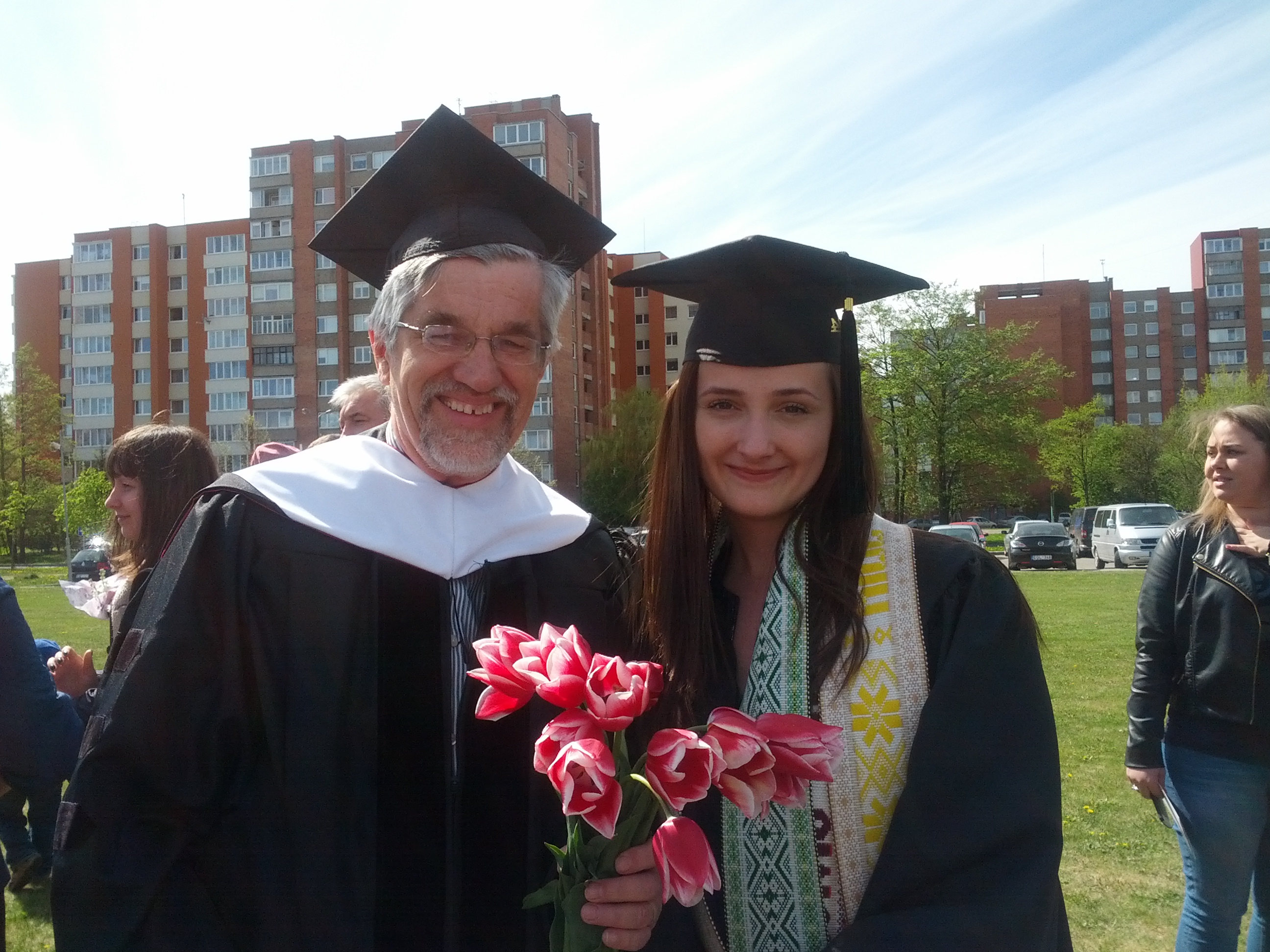
Teaching at a university in Lithuania, co-editing an issue of The Conrad Grebel Review, working on a book project, and spending time with family were all aspects of Dr. Neil Funk-Unrau's six-month sabbatical.
As an Associate Professor of Conflict Resolution Studies at MSC, Funk-Unrau is very familiar with the concept of restorative justice, something he describes as "an alternative vision of justice through healing rather than punishment."
Funk-Unrau had the opportunity to share his knowledge about restorative justice with a new audience as a visiting professor at LCC International University (LCC) in Lithuania. He taught a half semester, special topics course that provided an introduction to the concept of restorative justice.
Lithuania is part of "a region of the world that hasn't done much around restorative justice," says Funk-Unrau. "It's a new topic for people there."
The Baltic countries, which include Lithuania, are seeking to connect with Western Europe, where restorative justice is more prominent, explains Funk-Unrau. Baltic countries "want to see if restorative justice is something they want to do as well," he says.
LCC's social science programming includes some courses on conflict transformation, taught by instructor Giedrė Gadeikytė, who teaches peace and conflict studies. The class Restorative Justice, taught by Funk-Unrau, was the first course LCC offered on the topic.
Funk-Unrau says that students responded positively to the concept of restorative justice, as did the university as a whole.
"I began some discussions with other staff who are looking at how they can develop more restorative aspects in university policies," says Funk-Unrau. "Restorative justice can apply to relationships and living in dorm, for example."
As a visiting professor, Funk-Unrau was also encouraged to engage with the wider community. In conjunction with Gadeikytė, Funk-Unrau hosted a workshop for educators that provided ideas for incorporating restorative justice practices in schools. Around 30 school administrators and guidance counselors attended the event.
Offering a course and workshop on restorative justice was timely, as tensions between Russia and Ukraine began to rise during Funk-Unrau's time at LCC. He says he witnessed students from each country model peacemaking as they studied and lived with one another at the university.
"It was an incredible experience," says Funk-Unrau, of his time at LCC. "A highlight of my sabbatical."
Funk-Unrau also devoted a portion of his sabbatical to co-editing the Spring 2014 issue of The Conrad Grebel Review, which focused on the topic Teaching Peace Studies.
"The whole idea was to focus on reflecting on what it means to teach peace studies, particularly when you're coming at it from an Anabaptist institution," says Funk-Unrau, who co-edited the journal with Dr. Reina Neufeldt, Assistant Professor of Peace and Conflict Studies at Conrad Grebel University College.
Each author offers a different perspective on how they relate to an Anabaptist identity. Contributors come from a variety of backgrounds and experiences and yet there are common threads among their articles.
"Certainly when you're teaching something like peace studies, it's not just how you teach—it's how you live, it's how you interact with students in the class," says Funk-Unrau. "Instructors' own identities become a part of their teaching."
The articles offer personal reflections but also provide some interesting tools and ideas for teaching peace studies. "I'm excited about the quality of the articles and the range of different perspectives coming together," says Funk-Unrau.
Another portion of his sabbatical was devoted to working on a book, which "looks at the use and misuses of political apologies." The idea for the book grew out of several published articles, the most recent of which was a case study of the federal Canadian apology presented to indigenous people in 2008 published in a European edited book earlier this year.
The book will address the question of why apologetic statements are powerful by drawing on social narratives that will resonate with a broad audience. Funk-Unrau will explore questions of how an apology can shape a story and "provide a sense of identity and direction" to that story.
There are many aspects of public apologies that Funk-Unrau is interested in, including the reactions to apologies, the expectations around them, and the process surrounding apologies in the legal sphere.
In 2007, Manitoba adopted The Apology Act, legislation that stipulates an apology issued in court cannot be used to hold an individual liable for his or her actions. Manitoba, British Columbia, and Ontario are the only provinces that have enacted this type of apology legislation.
"One area of research that would be useful to push forward is to explore the impact of apology legislation," says Funk-Unrau. "Does it really help to have the legal recourse to make that statement and not take the consequences of the action?"
Funk-Unrau's interest in restorative justice work began when he volunteered with Mediation Services as a victim-offender mediator. Seeing people, who were at one point so far apart in their perspectives, change and develop a connection with one another, energized him in his role.
Today he draws energy from the enthusiasm and interest his students have for the topic of restorative justice. His courses attract students from different fields of study including criminal justice and conflict resolution, which Funk-Unrau finds enhances classroom discussion.
"The restorative justice course brings the different perspectives together in the classroom," he says. "I can see the dialogue and growth that happens as a result."
Ellen Paulley is the Writer & Social Media Coordinator at Menno Simons College
Faculty: In Their Own Words
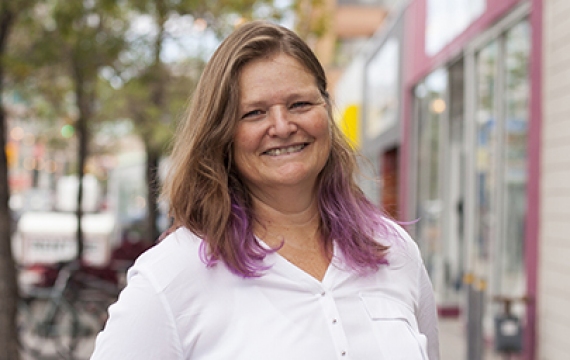
Karen Ridd, Teaching Associate Professor, Conflict Resolution Studies
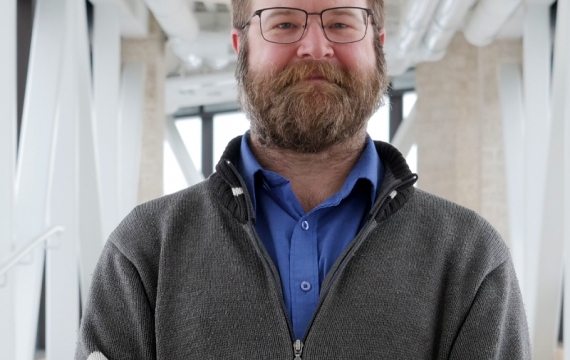
Dr. Jonathan Sears, Associate Professor of International Development Studies
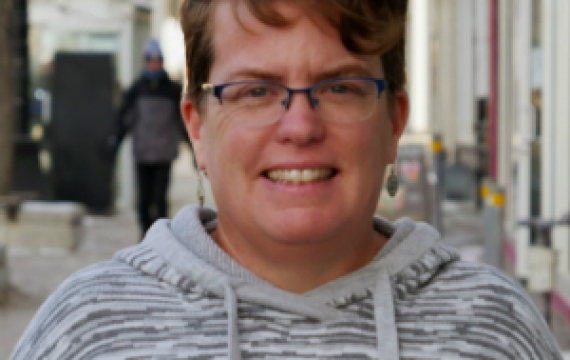
Dr. Jodi Dueck-Read, Assistant Professor of Conflict Resolution Studies
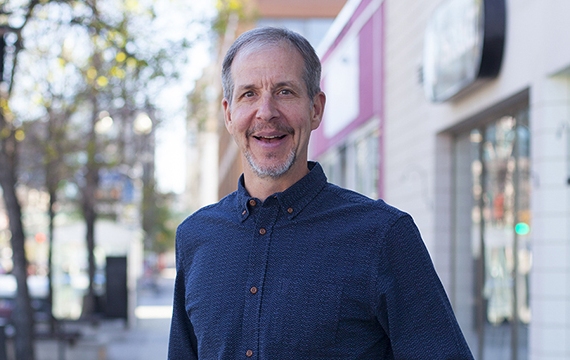
Dr. Jerry Buckland, Professor of International Development Studies



 Print This Blog Post
Print This Blog Post